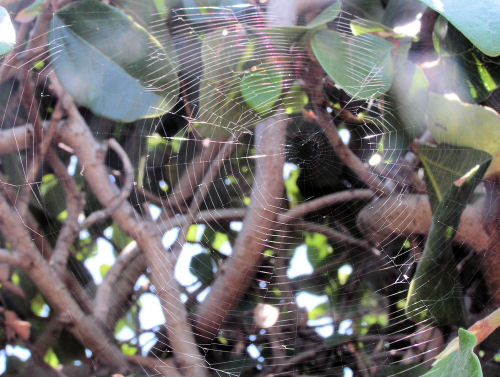December 16

How much silk can a spider spin in a day?
One species commonly studied by researchers is the golden silk spider (Nephila clavipes), an orb weaver that tends to spin a large web daily. Without harming the spider, scientists can extract from one individual over 80 feet of silk a day.
Spider silk is made of complex proteins called fibroins, manufactured by the spider's many different spinning glands. Fibroin production requires the nutrient choline, which the spider also needs for essential physiological processes. Spiders don't produce choline naturally but must obtain it from their diet. So the spider must budget its available choline between web building and life support.
Spiders getting a moderate diet produce the largest webs. Hungry spiders build small webs because they need to conserve choline for basic life functions. Sated spiders also build small webs because with choline supply high, they needn't invest it in attracting prey and can instead use it for growth, reproduction, or other functions.
posted by Peggy or Guy at 7:28 PM